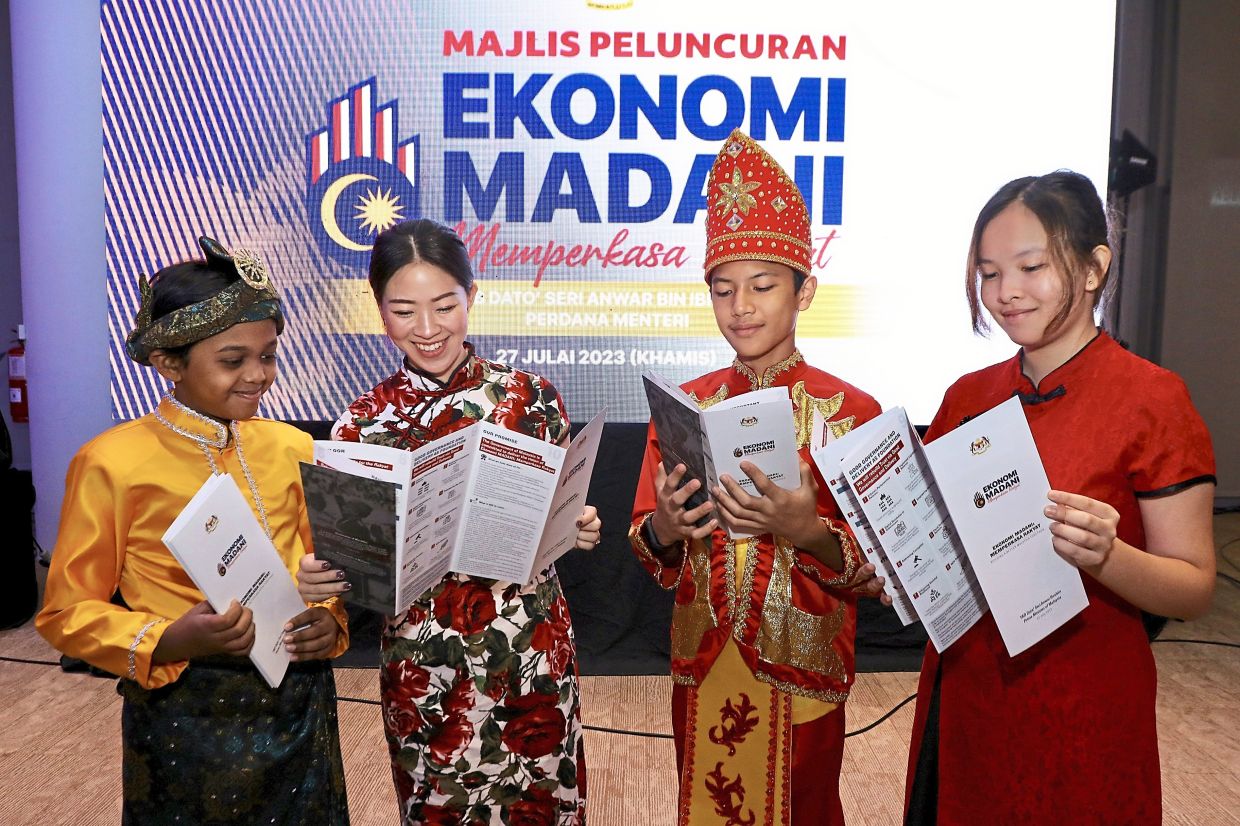Good recovery: Malaysia’s diversified and relatively more sophisticated economy provided greater buffers than neighbouring countries with higher incidences of poverty and greater dependence on fewer sectors, like tourism. — Photos: FAIHAN GHANI/The Star
I REMEMBER first arriving in Malaysia in late September 2021. Malaysia was already easing its way out of most movement restrictions. I found a society coping with the global crisis in an orderly and organised fashion. The rules in place seemed clear, and people were willingly following them. Over the ensuing months, I witnessed the country gradually and steadily regain its footing.
A little over a year after Malaysia officially transitioned to the endemic phase of the Covid-19 crisis, it’s easy to overlook the challenges we faced just a few years ago.
Today, the world continues to grapple with challenges and uncertainties from multiple sources, such as the war in Ukraine, geopolitical tensions between China and the United States, stubborn inflation, and climate change. Although the pandemic is over, countries’ resilience to unforeseen shocks remains critical, now more than ever.
The World Bank recently issued a report analysing the economic impacts of Covid-19 and the corresponding government responses in six East Asian countries: Cambodia, Indonesia, Malaysia, Mongolia, the Philippines, and Vietnam. Drawing from diverse experiences across countries, the report explored sources of vulnerability and resilience brought about by the crisis.
My initial impressions of Malaysia resonate well with the findings from the report. The country did manage to contain the worst of the pandemic’s impacts on the economy and resumed vigorous growth by 2022. Our series of rapid surveys of households and firms throughout the pandemic show that Malaysian firms, on average, suffered fewer losses in sales or work stoppages, and fewer workers in Malaysia lost their jobs than in the other five countries.
Malaysia’s diversified and relatively more sophisticated economy provided greater buffers than neighbouring countries with higher incidences of poverty and greater dependence on fewer sectors, like tourism.
Government actions were decisive and far-reaching, to implement movement controls to limit the spread of the virus, to care for the sick, and support families and firms.
However, Malaysia’s seemingly milder economic impact masked essential differences. Small firms endured more significant employment losses than medium or large firms. Women, workers with low income, lower education, and younger workers were more likely to stop working during the crisis.
The government responded with a series of social protection measures during the pandemic, including extending the coverage for the Bantuan Prihatin Nasional cash assistance programme to middle-income households. Even though most low-income families received some form of government assistance, around 60% of the households earning less than RM4,000 a month before the pandemic reported that they still could not cover their basic needs. This is partly because of the relatively low average benefit level, about 10% of their market income. This is considerably lower than the average benefit level among upper-middle-income countries, at about 25% of market income.
While Malaysia’s economy is already more resilient than most neighbours’, addressing these disparities will be critical in ensuring its preparedness for the next shock.
This requires continued – and more efficient – support for small and medium enterprises (SMEs) to facilitate greater take-up of digital technologies, including combining these with programmes to foster digital skills and refine the social protection system, especially well-targeted social assistance that can be scaled up or down according to needs.
Relatively high household debt should be controlled. Fiscal buffers must be revamped to recharge the government’s capacity to respond swiftly.
Effective and timely use of data to guide policymaking and transparency to maintain public trust in government actions will be crucial for both agility and efficiency in government decision- making and constructive collective effort by the population.
The government’s recently announced Ekonomi Madani vision contains many necessary elements for making Malaysia’s economy even more resilient to future shocks. These include a further push to “raise the ceiling” by accelerating digital economic transformation and strengthening food security while also “raising the floor” by striving for equal and inclusive opportunities, universal access to quality healthcare and education services, and social protection for all.
As the world eases into a post-pandemic period, I take a moment to reflect on the journey so far. The pandemic has reshaped us all, and my understanding of Malaysia has deepened through personal interactions with its diverse communities. Moving forward, with informed policies forged from our Covid-19 experience, we’ll stand ready to tackle future challenges head-on toward a resilient, prosperous, and equitable Malaysia.
Yasuhiko Matsuda is the World Bank country manager for Malaysia. The views expressed here are solely the writer’s own.








